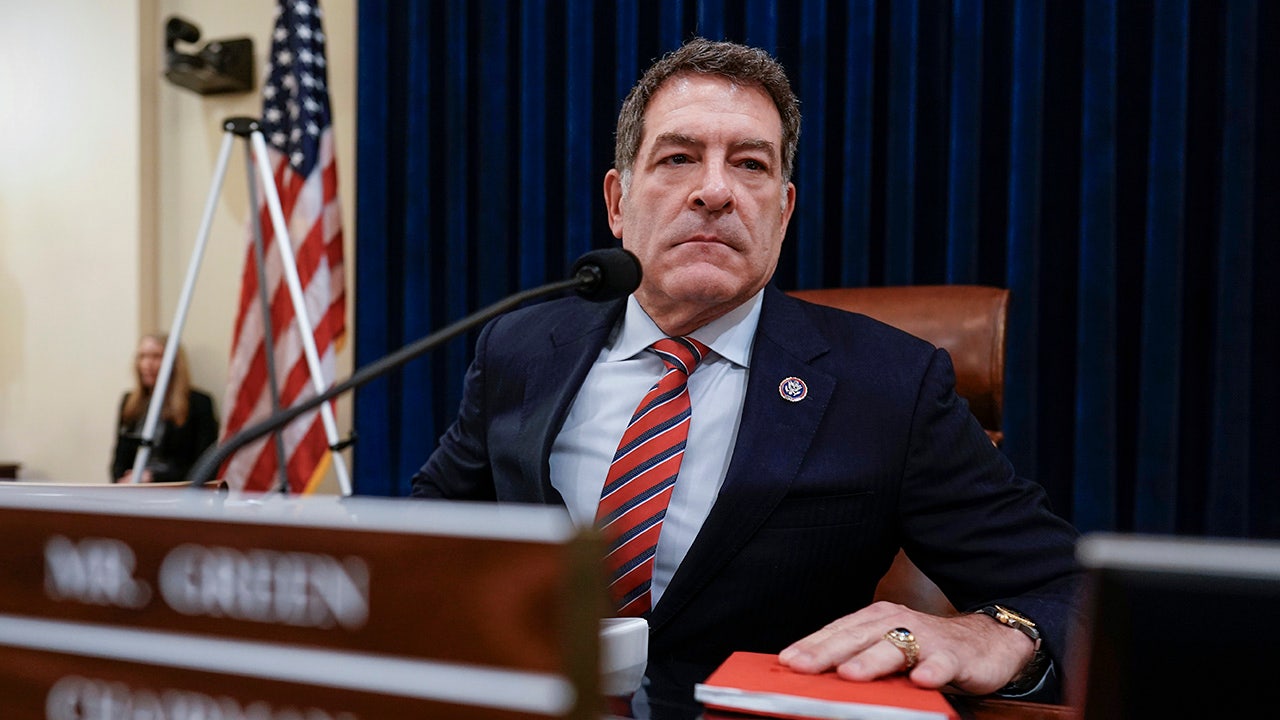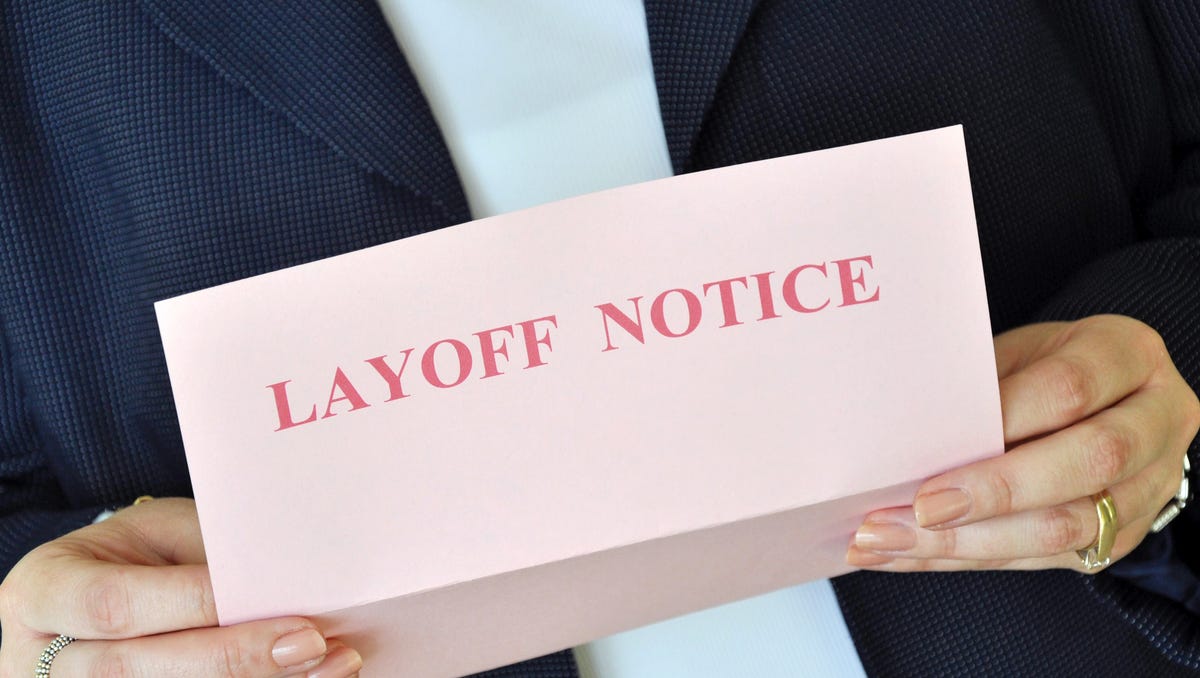Education
What to Know About College Admissions Now That Affirmative Action Is Gone

With the Supreme Court decision banning race-conscious affirmative action, the college admissions process is about to change for everyone. Hundreds of colleges have stopped requiring standardized tests, essays are likely to be much more important, and admissions decisions could become much more subjective.
We asked readers to send us their questions about college admissions, and answered a few of them below.
I’ve won prizes in an extracurricular activity. Does that help?
How much do extracurriculars count in an application? For example, I’m a writer who has entered a handful of contests and self-published some stories. How far do I need to take that to get into a Top 20, or my dream school, Columbia? — Jackson Urrutia-Andrews, Folsom, Calif.
That’s a hard question to answer without a clearer picture of your entire application.
But we ran your question by Terry Mady-Grove, a college admissions consultant based in Port Washington, N.Y. She said it was highly unlikely that one extracurricular activity alone would propel you into a Top 20 college.
Even winning a writing contest won’t necessarily be the ticket to Columbia, she said, but exhibiting a long term passion for writing could be a big help.
“What can truly set a student apart is dedication over a period of time,” Ms. Mady-Grove said. “While entering contests could be a plus, authentic, sustained dedication and demonstrating a true love for writing will be key.”
Yes, male students are in demand.
Do men have an advantage since women applicants outnumber them? — Denise Somsak, Evendale, Ohio
You’ve hit on a problem that poses a quandary for college admissions officials: the gender gap.
Nationally, more women than men apply to college, attend college and receive degrees. Female students make up nearly 60 percent of students across the country.
Though you would be hard put to get an admissions officer to confirm it, there have been reports that suggest that male students have an easier time getting into college.
An analysis by The Brown Daily Herald of the 2021-22 admissions cycle found that Brown University received 13,000 more applications from women, and that men had a decided advantage in admissions. During that cycle, 6.73 percent of male applicants were admitted, compared with 4.06 percent of women, the analysis found.
But a look at admissions numbers at another highly selective campus, the University of Virginia, found that the acceptance rate was about the same for men and women. But because more women than men apply, more women are admitted.
Why not choose names out of a hat?
If there aren’t any standards (no required SAT scores), if we can’t talk about race (no affirmative action) and if it’s only based on grade point averages, why don’t we just move to a lottery system? — Chelsey Kueffer, Captain Cook, Hawaii
The idea of admitting students to very selective schools, like the Ivy League, by lottery seems the very antithesis of the current process. But some academics have started to talk about lotteries as a potential way to reform college admissions.
Whether it will ever happen is an open question.
Michael Sandel, a Harvard political theorist, wrote a book that assailed meritocracy, “The Tyranny of Merit: What’s Become of the Common Good?”
He worried that students at elite colleges failed to recognize that luck, not just hard work, went into their success. And he proposed that elite schools like Harvard hold a lottery for students above a basic minimum threshold.
How would that work?
L. Song Richardson, president of Colorado College, said she has been intrigued by Mr. Sandel’s concept of a lottery.
“What I like about the lottery admissions idea is that it’s more transparent,” she said in an interview.
It would be something of a guided lottery, she says. Students would have to meet a certain threshold first — say, grades or test scores or some other metric — and then their names would go into the hat.
“We’re assuming that every single person above the line can be successful at the school,” Dr. Richardson said. “And so now we can shape the class as we want or not, or not shape it at all and just have it be a lottery.”
A college could maintain its values by, for instance, giving two tickets to alumni families, if it had a policy of legacy admission. Or it could give more tickets to full-paying students or low-income students.
The lottery, she said, would eliminate the most subjective part of admissions: who happens to be reading the file.
“We each have our own biases, whether they’re conscious or not,” she said. “And so what a lottery system does is it takes that away. Students could say that they are special still because they are above the line.”
The downside is that a lottery takes away that almost magical sense of being chosen by a hidden power, a greater wisdom, the very syndrome it is supposed to combat, she concedes.
So, she adds, “I think that’s why many schools probably wouldn’t do it.”
Kitty Bennett contributed research.

Education
Opinion | The Ugliness of the ‘Big, Beautiful’ Bill, in Charts

With unusual speed, and despite an armada of controversial provisions, Congress has birthed a sprawling, nearly 900-page policy bill stuffed with hundreds of changes that will bestow trillions of dollars in tax cuts on the rich and special interests while slicing deeply into social programs relied on by millions of Americans.
Much like President Trump’s 2017 tax bill, it will add substantially to the deficit and the debt without providing any meaningful impetus to economic growth. But this time, it will be much worse. This legislation will pile about $3 trillion onto the deficit over the next 10 years, double the amount its predecessor was expected to generate. And it lacks provisions that could significantly boost economic growth.
Our Rich Keep Getting Richer
Impact on the deficit over 10 years
Its signature and most expensive components make a slew of individual tax cuts — cuts instituted in 2017 that primarily benefit wealthy Americans — permanent. To help pay for them, the bill makes student loans more expensive, slashes incentives for clean energy and reduces funding for and access to Medicaid. Missing yet again, despite Mr. Trump’s promises, is any effort to raise the tax rate on carried interest earnings, a major win for private equity. But the bill does deliver on one of his campaign promises: serving up tax deductions (albeit not permanently) for overtime pay, tips, car loan interest and for seniors.
Millions Lose Access to Medicaid
The biggest and most damaging cuts are those to Medicaid — cuts that got only more draconian as the bill moved from the House to the Senate. About a third of the savings come from the imposition of a work requirement on recipients. While Republicans claim they are only attacking waste, fraud and abuse, the resulting paperwork to comply with the requirement is expected to daunt many and result in lost coverage. All told, these changes will cost over 10 million Americans their health care, according to the Congressional Budget Office.
The Cost of College Will Soar
Average monthly student loan payments
The legislation largely guts the Biden administration’s student debt repayment program that offered lower- and middle-income families generous terms. As a result, average monthly obligations for borrowers will surge, with a typical loan recipient with a college degree and an annual income of $80,300 paying an additional $2,929 per year.
What Climate Change?
Clean energy investments announced since the Inflation Reduction Act
The bill rolls back many of the clean energy tax incentives and investments created by the 2022 Inflation Reduction Act, throwing a major roadblock in the way of combating climate change. Since the passage of the act, the United States has been experiencing a boom in clean energy investments, with $321 billion spent and $522 billion more on the way. Many of these projects will very likely be abandoned. Most Republican legislators are supporting this despite the fact that a vast majority of these investments have taken place in Republican congressional districts, where permitting is generally easier and weather can be more conducive to solar and wind power generation.
Trump’s Biggest Budget Buster
The relative scale of Trump’s domestic policy bill
The package adds to our national debt in a way that dwarfs any of the other packages passed in the eight years since Mr. Trump first took office. His signature 2017 tax cut added a relatively modest $1.5 trillion to the 10-year deficit projection, but it did so by scheduling some of its provisions to expire after eight years, thereby setting the stage for the current legislation, which makes those changes permanent. (The bill uses the same gimmick with some of its tax breaks to keep costs down.)
Spending Has Drifted Out of Balance
Federal revenue vs. spending
The resulting deficit puts our economy in a perilous place. Over the past 50 years, federal spending as a percentage of gross domestic product averaged 21.1 percent. But since ballooning during the Covid-19 pandemic, spending has remained stubbornly above this average. With tax increases politically off the table, this means larger deficits.
How the Budget Fits Together
The biggest pieces of the budget
The bill is just the latest, and worst, example of a policy followed by both Republicans and Democrats in recent years: Take the easy way out and let deficits climb. The costs of Medicare and Medicaid are rising relentlessly and are now just over 5 percent of G.D.P., compared with 1.2 percent in 1975. Social Security’s outlays have also grown. And now, because of increasing debt and higher interest rates, the cost of servicing the national debt has begun to soar. Allowing the 2017 tax cuts to expire, which effectively would have raised taxes on 62 percent of Americans, could have been highly unpopular. But it was also necessary.
One Big Borrowing Bill
Instead of growing to $2.7 trillion in 2035 from $1.9 trillion this year, this legislation will boost the deficit to $3.08 trillion a decade from now, according to one estimate. Exclude the gimmick of scheduling certain tax breaks to expire — an unlikely event, as demonstrated by Congress’s unwillingness to let the 2017 cuts fade — and the projected deficit climbs to $3.21 trillion. This puts total publicly held national debt at as much as 130 percent of G.D.P., materially higher than at any other time in our nation’s history. These higher deficits put upward pressure on interest rates, weakening the economy, and even more important, create an enormous debt burden for future generations to deal with.
The More You Make, the More You Benefit
The bill’s impact on household finances, by income quintile
The legislation will be far more beneficial for the wealthiest, at the expense of those farther down the economic ladder. The bill makes permanent a regime in which the richest fifth of American households — those with annual incomes of $120,390 and above — will get an average benefit of 2.3 percent of their income, or $6,055. In contrast, the fifth of Americans with the least wealth will suffer an estimated loss of $560, largely because of the effect of the cuts to Medicaid and food stamps.
The Economic Benefit Is Negligible
The White House predicts much more growth from this bill than other models
As for the impact of the legislation on economic growth, the White House is operating in its own universe. Private forecasters generally expect only a small bump to gross domestic product, with the Budget Lab at Yale University projecting even less growth. The White House Council of Economic Advisers, on the other hand, asserts that growth could reach 4.9 percent in 2028, multiples higher than other estimates.
In my 50 years of following tax and budget policy, I don’t believe I have seen another piece of legislation that would have such broad and deep impacts on virtually every American. No important social welfare program like Medicaid has ever been rolled back to this extent. The tax changes will also exacerbate income inequality. It is a result that should embarrass the Republicans — and may well come back to haunt them in 2026 and 2028.
Education
Here Is All the Science at Risk in Trump’s Clash With Harvard

The federal government annually spends billions funding research at Harvard, part of a decades-old system that is little understood by the public but essential to American science.
This spring, nearly every dollar of that payment was cut off by the Trump administration, endangering much of the university’s research.
Grants terminated at Harvard
This picture represents nearly every grant the government has canceled at Harvard.
This one has tracked the health of 116,00 American women continuously since 1989.
This one supported domestic Ph.D. students training to be America’s next neuroscientists.
This one studied the role of telemedicine in treating opioid addiction.
These two probed how salamanders regenerate their legs, to eventually aid human amputees.
These sought advances that could one day enable Navy divers to breathe underwater without oxygen tanks.
This one funded work with rural school districts to test ideas to lift student outcomes and attendance.
Now all of these projects are in jeopardy.
The New York Times was able to identify more than 900 terminated grants, using court records, government databases and other internal university sources — a near-complete accounting of the cuts in the Trump administration’s escalating campaign to cripple the university.
The White House and Harvard have resumed negotiations to resolve the government’s claims that the nation’s oldest university has “failed to live up to both the intellectual and civil rights conditions that justify federal investment.” But while researchers await the outcome — or that of a parallel lawsuit brought by Harvard — the federal support for every one of these projects remains halted.
The Trump administration has canceled research grants at other universities, too, ending studies related to racial diversity and equity, scaling back the reach of federal science agencies, and sometimes attacking universities it views as ideological foes.
But Harvard is unique both in the volume of its research output and the extent of these cuts — the government has threatened to end every research dollar to the university. The canceled grants accounted for here add up to about $2.6 billion in awarded federal funds, nearly half of which has already been spent according to government data.
“Even ‘grant’ is a problematic word, because people think they’re just sort of handing this money out for us to do what we want with,” said Marc Weisskopf, who directs a center for environmental health at Harvard that lost its funding from the National Institute of Environmental Health Sciences.
On the contrary, the government is much more explicit in competitive research applications and grant reviews: It wants more neuroscientists. It wants better opioid treatment. It wants to know how lightweight origami-inspired shelters and antennas can be unfurled in war zones.
The money the government sends to Harvard is, in effect, not a subsidy to advance the university’s mission. It’s a payment for the role Harvard plays in advancing the research mission of the United States.
This is the science model the U.S. has developed over 80 years: The government sets the agenda and funds the work; university scientists design the studies and find the answers. The president’s willingness to upend that model has revealed its fragility. There is no alternative in the U.S. to produce the kind of scientific advancements represented by these grants.
Foundational discoveries and future cures
Much of what the government funds at universities is “basic” research — the foundational knowledge that lays the groundwork for technological advances, disease cures and improvements in quality of life.
Daniel Nocera, a Harvard chemist, had four total grants terminated from the Department of Defense, the Department of Energy and the National Science Foundation. His lab develops new chemical methods to address practical problems, such as developing an artificial leaf that can convert air and sunlight into biofuels, or extracting oxygen from seawater so that divers could one day swim without a heavy oxygen tank.
“I have to answer these questions that a company doesn’t have time to answer,” he said.
That’s because basic research takes years. And it produces insights that aren’t profitable on the time scale of corporate quarterly earnings.
Stephen Buratowski’s project to understand how genes are expressed and regulated is in its 25th year of federal funding. An early discovery in his lab used yeast cells to reveal how different steps are coordinated in the formation of messenger RNA, a mechanism later confirmed in human cells by researchers at other universities. Today, 20 years later, several companies are testing potential cancer treatments built on that knowledge.
Such long-term federal investments are inherently risky and expensive (a single tube containing a teardrop size of purified enzyme used in Professor Buratowski’s lab costs $400 to $500). And some ideas don’t prove as fruitful. But the government can bear this risk better than industry or individual universities can.
“It’s almost as if the government is acting as a venture capitalist,” Professor Buratowski said. “They’re putting out an ad saying, ‘We’ve got a pool of money, send us your best ideas.’”
Dragana Rogulja’s Harvard lab studies how chronic sleep deprivation harms the body. Her lab discovered that when fruit flies or mice are deprived of sleep, it damages their gut, which can be fatal. But when sleep-deprived flies were then treated with antioxidant drugs, they had normal life spans.
She received a grant from the Department of Defense’s health agency to detect biological signals in samples of blood, urine or saliva that warn of organ damage from sleep loss in mice. “If we are right,” her research proposal stated, “this would be a major breakthrough that would offer practical ways to mitigate health damage caused by poor sleep.”
Without researchers at Harvard or other universities doing this foundational work, it’s not clear who would. The government doesn’t have the expertise. Companies don’t have the luxury of time. And this same research would cost far more outside academia, where it runs on graduate students working long hours at relatively low cost.
Evidence for public policy
Other grants at Harvard produce something different from a lab discovery or a medical cure. This research provides evidence that shapes public policy, like nutritional guidelines, federal laws or local education initiatives.
A federal rule in 2018 banned artificial trans fats, following the findings of a decades-long longitudinal study of women’s health based at Harvard.
“A lot of things we take for granted — ‘Oh, everybody always knew that’ — no actually, we published those findings,” said Walter Willett, a professor of epidemiology and nutrition who leads that study.
Of similar direct interest to the government, other Harvard researchers are trying to determine how well telemedicine appointments — sometimes paid for by Medicaid and Medicare — connect opioid use disorder patients with lifesaving treatments. (Some of the National Institutes of Health funding for that research goes right back to the government, in the form of fees to access Centers for Medicare and Medicaid Services health data).
Other researchers are studying how well community college students have fared amid remote learning, after a pandemic boost in federal support for community colleges. Others are working on how to implement smoke-free policies in low-income housing after a move by the Department of Housing and Urban Development to curb secondhand smoke.
“We are directly informing the government’s capacity to work to serve its constituents,” said Vaughan Rees, the lead investigator on that HUD-funded research.
Just as much of basic research couldn’t be done in corporate labs, this kind of work — often relying on large-scale surveys, or partnerships that cross universities, hospitals and countries — couldn’t be funded by Harvard alone.
“No university could do that,” said Lisa Berkman, a professor of public policy and epidemiology who works on international studies. “This is science that rests on a public investment.”
Training the next generation of scientists
Federal funding also fosters not just science, but scientists. Grants pay the salaries of graduate students and postdoctoral researchers. Grant terms regularly require that lead researchers incorporate student training into their work.
Jessica Whited, a professor of stem cell and regenerative biology, was the first in her family to become a scientist. As an undergraduate, she earned a scholarship at the University of Missouri and worked part-time under the federal work-study program. As an early-career researcher, her research was funded by competitive N.I.H. grants.
“I wouldn’t be sitting here today without the government,” she said.
Her lab studies how the axolotl, a salamander species, can regenerate its limbs, producing insights that could lead to treatments for human amputees. In 2019, President Trump awarded her the Presidential Early Career Award, the nation’s highest honor for early-career scientists and engineers. Last month, the government canceled the grants that provided nearly all of her funding.
The canceled grants highlighted below are specifically designed for training and professional development. They include National Science Foundation fellowships for undergraduates, graduate students, postdoctoral researchers and early-career researchers, and similar training opportunities from the N.I.H. Together, these awards cover about a tenth of the total funding cut by the government at Harvard.
Terminated grants for training and career development
Paul Bump, a postdoctoral fellow, was just awarded one of these grants — the first of his career — in January. He wants to uncover the fundamental mechanisms of where stem cells come from in certain animals that, unlike humans, continue to produce them throughout their lives. (He works, in particular, on the three-banded panther worm, which can regenerate into two worms when cut in half.)
“What are the grand biological processes that explain that?” he said, describing what amounts to nature’s solution for making stem cells. The public’s down payment on the answer was about $75,000 a year to fund Mr. Bump’s work for two years.
Harvard is trying for now to provide stopgap funding for many of these researchers and students, but it can’t permanently replace the government. That’s also because federal funds support much of the infrastructure that researchers rely on. Grants also cover the indirect costs Harvard pays to maintain facilities and research support staff. And some larger grants directly fund research hubs that assemble shared resources and facilities for many scientists from different specialties working on related topics.
For 18 years, Harvard has hosted a center studying worker safety, health and well-being funded by the National Institute for Occupational Safety and Health, an arm of the C.D.C., where researchers from multiple institutions have studied the health of construction workers, Sept. 11 first responders, health care workers and warehouse workers.
The center’s canceled grant jeopardizes its active research projects, but also the partnerships with hospitals, insurance companies and employers that have taken years to develop, said Glorian Sorensen, a Harvard professor who co-directs the center.
“This is larger than any individual grant,” she said. “What we are losing is a future.”
Explore the data
Click on the chart below to explore the canceled grants for yourself:
About the data
To account for Harvard’s terminated grants, we used data from multiple sources: letters from government agencies included in court filings by the university; lists of terminated grants provided by the Department of Health and Human Services and the National Science Foundation; a crowd-sourced list of grant terminations at Grant Watch; and some additional data from internal university sources. We interviewed 23 researchers whose grant funding was terminated, who confirmed those specific cancellations.
Our charts show the total obligated amount for each grant using data from USAspending.gov, which reflects the funds that the government has set aside for each project. In cases where a grant was extended or renewed, this figure typically accounts for the entire lifetime of the grant to date, and not just the most recent renewal. Obligated funds for multiyear grant awards are typically paid out gradually over a number of years. Our charts do not account for this outlayed spending — the portion of these obligated funds that have been paid by the government so far — because there are substantial lags in this spending data for some agencies. This analysis did not include the $100 million or so in federal contracts, separate from grants, much of which also fund scientific research.
Education
Judge Delays Ruling on Trump Efforts to Bar Harvard’s International Students

A federal district judge on Monday delayed a ruling on whether to continue blocking President Trump’s proclamation that barred international students from attending Harvard University.
A temporary injunction on implementing the proclamation remains in place until next week.
Judge Allison D. Burroughs said she would rule by next week on the White House proclamation, after hearing arguments from lawyers for both Harvard and the Trump Administration on Monday morning.
About 5,000 international students are enrolled at Harvard. Another 2,000 recent graduates are in the United States on visas permitting them to work temporarily.
Losing those students could deliver a disabling blow to the campus’s finances, curriculum and identity.
This story is developing. Please check back for updates.
-

 Business1 week ago
Business1 week agoSee How Trump’s Big Bill Could Affect Your Taxes, Health Care and Other Finances
-

 Politics1 week ago
Politics1 week agoVideo: Trump Signs the ‘One Big Beautiful Bill’ Into Law
-

 News1 week ago
News1 week agoVideo: Who Loses in the Republican Policy Bill?
-

 Culture1 week ago
Culture1 week ago16 Mayors on What It’s Like to Run a U.S. City Now Under Trump
-

 Technology1 week ago
Technology1 week agoMeet Soham Parekh, the engineer burning through tech by working at three to four startups simultaneously
-

 Science1 week ago
Science1 week agoFederal contractors improperly dumped wildfire-related asbestos waste at L.A. area landfills
-

 World1 week ago
World1 week agoRussia-Ukraine war: List of key events, day 1,227
-

 Politics1 week ago
Politics1 week agoCongressman's last day in office revealed after vote on Trump's 'Big, Beautiful Bill'














